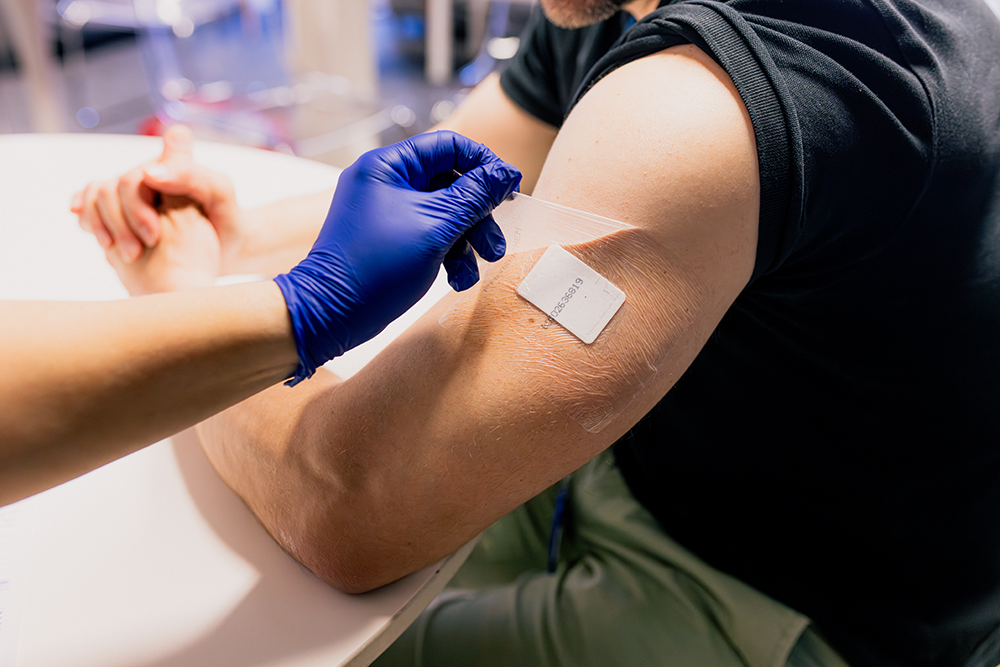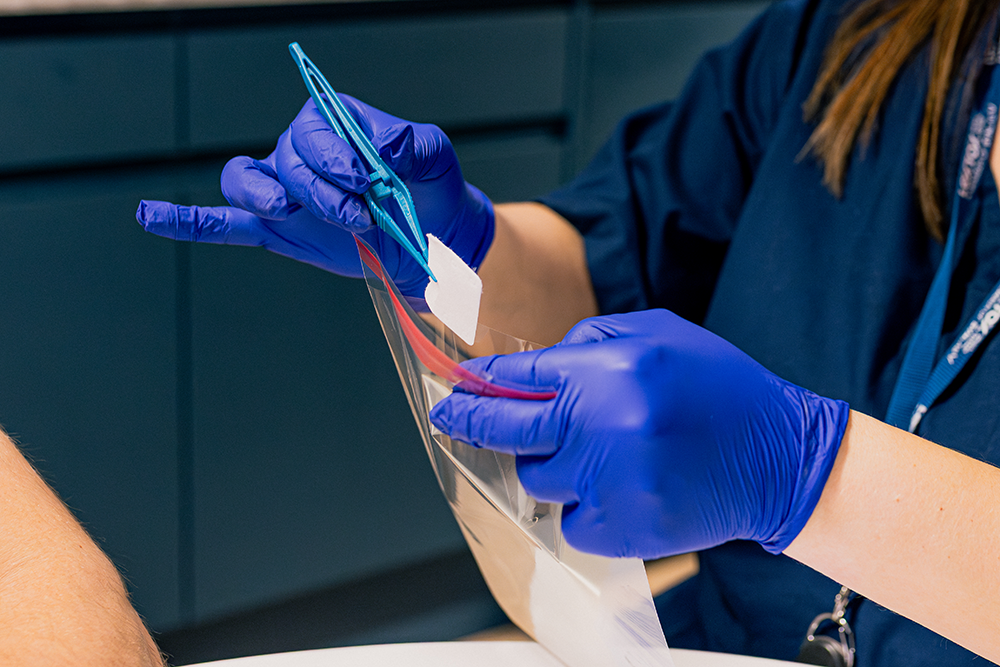
Case Study: Drug Abstinence Monitoring Kept a Family Together
Key outcomes
Parents in need of support
Like most parents, when Anna* and David* found out they were expecting a baby boy in late 2024, they were concerned about the challenges a new born would bring. However, while most new parents are busy with late night feeds and nappy changes, Anna and David had an additional concern; their long-standing substance abuse issue.
Anna was already a mum to three children, all of whom had been taken into care due to her amphetamine addiction, a substance which David also struggled with. Both parents also regularly engaged in criminal activity and had spent years living in tents, unable to secure themselves a permanent home. They both knew that given their situation it was highly likely their baby would be taken away once he was born.
However, thanks to Lextox’s collaborative work with the South Wales local authority where Anna and David were based, they became the first participants in a new abstinence monitoring programme, ensuring their son stayed with them.

A need to prove abstinence
When the case came across the team’s desk at children’s services, they were certain the case would end up escalating into the court arena and that it was a possibility that the baby could end up being placed for adoption. “You get a feel for these kinds of cases and, in my experience, with the case history being as risky as it was, there is a high possibility that intervention could end with the child being adopted,” says a spokesperson from the team. “I was also aware of Anna from a prior case and, while she had previously made efforts to improve her circumstances, she often relapsed.”
The team were “at the highest point of intervention, just below the court stepping in” when they were meeting with Anna and David’s legal team to assess care for the baby. Discussions had already begun regarding the baby being placed in a Local Authority foster placement as he would be without a home when he was born and, despite Anna and David stating they were abstinent from drugs, they had no way to prove this to ensure the baby’s ongoing safety.
“I had remembered an email I’d received from Lextox, launching a new service called DrugPatch and I thought it could work as it’s an ongoing monitoring tool for abstinence. Both donors had been abstinent before but we needed to prove the longevity of the abstinence, especially after the baby was born. Thankfully, Anna, David and their legal team were keen to try it so we got in touch with Lextox.”
Taking a holistic approach
DrugPatch was launched into the UK family law market in October 2024, with Lextox as the exclusive provider to the market. Designed to prove ongoing abstinence from drugs, the patch is worn on the donor’s outer upper arm for up to ten days at a time, continuously monitoring sweat for the use of drugs.
Once the decision was made to use DrugPatch, Lextox worked closely with the local authority’s children’s services to create a programme that suited all parties. It was agreed that alongside twice daily visits from children’s services, both Anna and David would wear the patches over a 20 week period, strengthening the risk assessment and safety plan, ensuring the baby would stay with them.
During this time, Lextox ensured the programme ran smoothly with regular check-ins, alongside the application and removal of the patches by trained collectors, who Anna notes “were always very friendly and non-judgemental.” There was also a risk of inconsistency with the programme as the venues for the fittings often had to change but the team states this was seamlessly managed.

The family stays together
DrugPatch played a key role in keeping this family together, even when Anna and David were faced with hardship. Just one month after their son was born, he had to spend a month in hospital due to seizures and, as the children’s services spokesperson says, “they went through a really tough time and still didn’t turn to substances. We didn’t have to go through the court process, they came off the child protection register and we prevented the need for social services and the court to intervene.”
And the benefits of the programme have extended beyond the baby staying with his parents, with Anna’s health visitor saying she’d never seen a baby so positively attached to his parents. Encouraged by her abstinence, Anna also took this time to reflect on her relationship with her other children, aware that she had previously been unable to remain abstinent, and has done a lot of work to mend those relationships.
“For anyone in a similar situation, I would definitely recommend the DrugPatch programme,” says the local authority’s spokesperson. “The most risky time for a relapse is after the baby is born as there is usually more motivation for the mother to stay abstinent during pregnancy. However, both Anna and David committed to the programme and not only has their son stayed with them but they are in a much more stable situation.”
Anna echoes these words, stating: “It was a positive experience as it helped towards keeping our son in our care and I’m proud of the fact we stopped using drugs.”
A collaboration that delivers results
Ever since its launch, the DrugPatch programme has always been intended to be used in collaboration with family law professionals, providing their clients with the support they need for their cases. Lextox’s managing director, Leigh Thomas, reiterates these sentiments: “Our goal is always to help safeguard children and the DrugPatch programme has been specifically designed to support cases like Anna and David’s. It’s so heartwarming to learn that DrugPatch has truly helped keep a family together and the collaborative, holistic approach supervised and driven by this local authority has delivered a positive outcome for all.”
*Names have been changed.
By Ellie Rees
Marketing Communications Manager
Ellie joined Lextox in 2023 with a strong background in public sector communications, having worked on campaigns for Welsh Government, Devon County Council and the wellness to work sector. She is passionate about the work that Lextox does and creating content that breaks down a complex process into easy-to-understand formats for clients. Ellie graduated from Goldsmiths, University of London with a BA in Media and Communications and has written for several publications including The Student Guide, The Everyday Magazine and House 21.

Published 17/09/2025. All information correct at time of publication.




